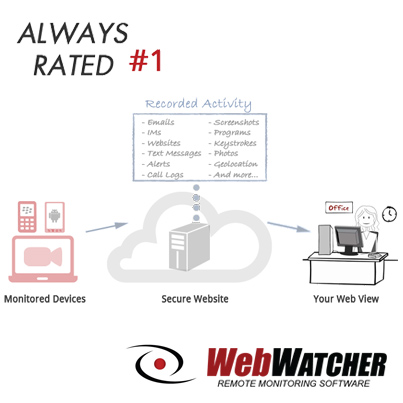According to a 2019 survey, over half of the children in the United States have a smartphone by the age of eleven, and 84% of teenagers have their own smartphones. That means that when parents are thinking about how to monitor their children’s internet use and communication, they need to think in terms of mobile devices, not just computers and laptops. And it’s not just internet communications that can be a concern, it’s SMS text messages as well.
Why Might Parents Want to Monitor Text Messages?
Your teens have multiple ways to communicate, even if the only device they have a smartphone. But texting is simple and accessible, so it’s still a go-to option even when your teen has plenty of other options (like messaging apps and social media sites) available.
Of course, there are plenty of reasons for your teen to send text messages that aren’t worrying at all. Teens text to set up plans to meet up later, to share notes for school, or just to chat. But if your teen is in any kind of trouble or doing anything that they don’t want you to know about, evidence of the situation is likely going to show up in their text messages as well.
Parents can sometimes forget what it was like to be a teenager. Teens are navigating all kinds of issues. Sex, drug and alcohol use, social pressure, academic pressures, bullying, and mental health issues are just some of them. And even when your teen isn’t personally affected, they probably know and interact with teens who are. The teen years can be a minefield, and it’s your job to give your teen the tools and strategies that they need to get through it. And you can’t do that if you don’t know what kinds of issues and people they’re dealing with.
Of course, teens don’t always tell their parents everything. You might like to think that your teenager would come to you with a serious issue, but there are many reasons why they might not. They may feel embarrassed. They may be concerned about getting into trouble, or about getting someone else into trouble.
Teens sometimes keep secrets that they shouldn’t keep out of a sense of loyalty to their friends. Or they may simply not recognize that a serious problem is actually a serious problem that requires adult guidance. That’s why text message monitoring matters.
You certainly don’t need to read every text message your teen sends or receives, but monitoring can help you keep tabs on what’s happening in your teen’s life. Spot-checking messages for worrying content can let you know when there’s something happening that you need to pay closer attention to.
What About Deleted Messages?

Naturally, if your teenager knows or suspects that you check on their text message history, they may take steps to prevent you from seeing anything that they don’t want you to see. And the simplest way to do that is to delete text messages after they’ve sent or read them. After all, if they’re no longer stored on the phone, they’re gone, right?
Well, not necessarily. There are a few ways that you can check to find out if text messages have been deleted and see what they are. Some phones offer users the opportunity to archive messages rather than delete them, so if you’re physically checking your teen’s phone, you could check the message archive. Archived messages won’t show up in the same spot as active message threads, but they may still be stored on the phone.
Most teenagers, however, understand the concept of message archiving and are aware that archived messages are not actually gone. They’ll figure out how to fully delete messages that they want to hide. Fortunately, some types of monitoring software can help with this. Such software preserves deleted messages so that you can go back and look to see what your teen has been sending or receiving even if they think they have made it disappear.
Talking to Your Teen About Text Message Monitoring
It’s usually not a good idea to hide from your teen the fact that you’re monitoring their devices. If you find anything in the course of your monitoring that requires your intervention, it will come out that you were monitoring, and the issue that your teen is dealing with that caught your attention could be lost in an ensuing argument about spying. Nobody likes to feel that they’re being spied on – especially not teenagers.
But you don’t have to hide that you’re monitoring text messages and other phone activities. You’re the parent. You’re very likely paying for the phone and the service. And you’re responsible for your teenager, including their wellbeing and safety. You have a right to know what they’re doing.
Let your teen know upfront that monitoring is a condition of allowing them to have the phone. Let your teen know that you won’t be gratuitously spying on their conversations, but that you will be spot checking periodically to make sure that everything is OK with them.
That way, when an issue does arise, you won’t have to deal with that plus an argument about whether or not you should be monitoring in the first place. Your teen will already know that monitoring is part of the deal.
When your teen knows that they’re being monitored, they may be more likely to come to you with issues in their lives, because they will know that you’re probably going to find out eventually anyway. They may also be more likely to make good decisions if they know that they’re being monitored.
But even if they don’t – and no one makes good decisions all the time, every time – good computer monitoring software will help ensure that you know when you need to intervene in a situation before it gets out of control.
To find out more about how to use monitoring software to protect your teenagers, get our risk-free trial





